site search
online catalog
1863 CIVIL WAR DIARY OF JAMES ANDERSON – 169th PENNSYLVANIA
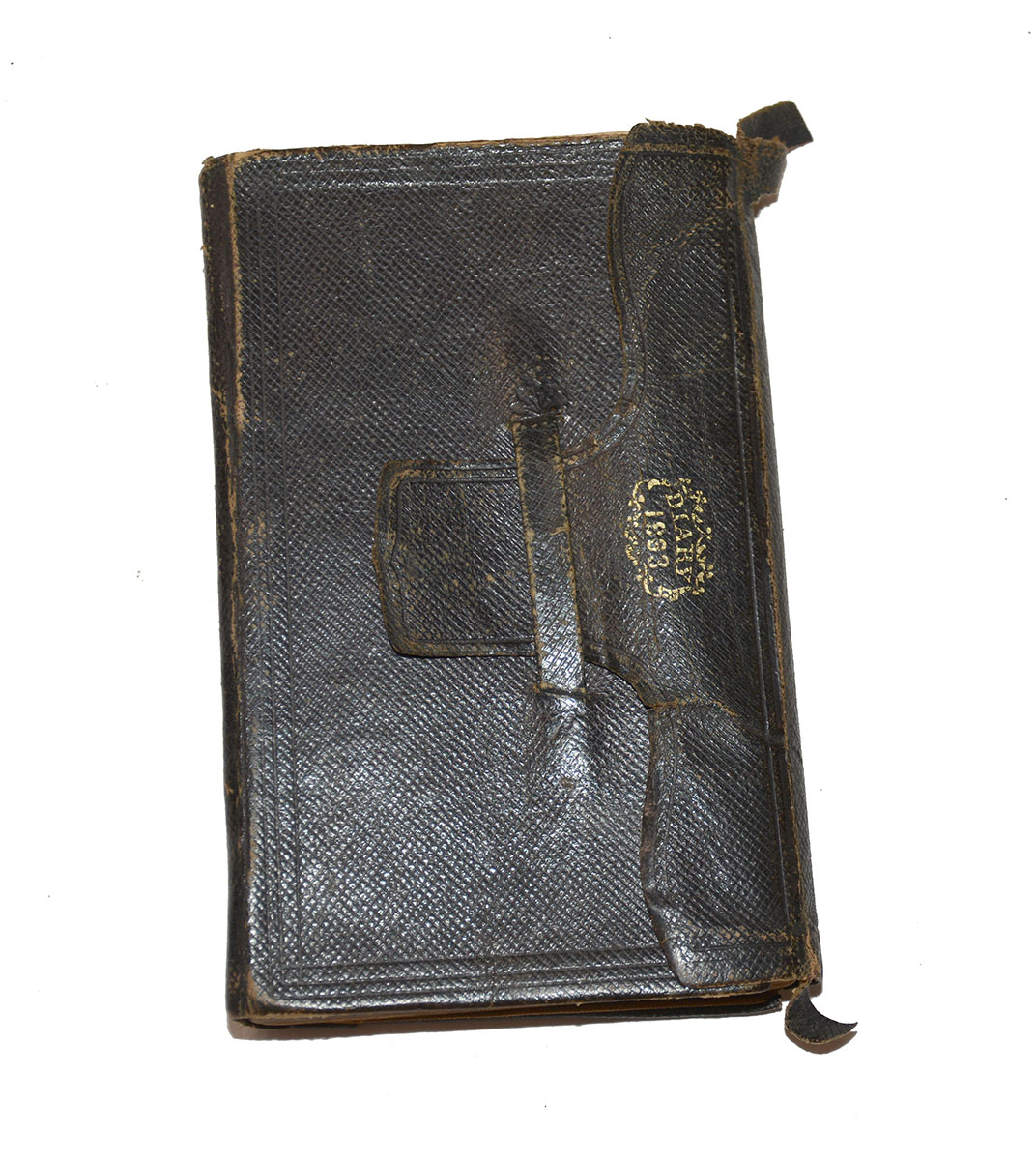
Hover to zoom

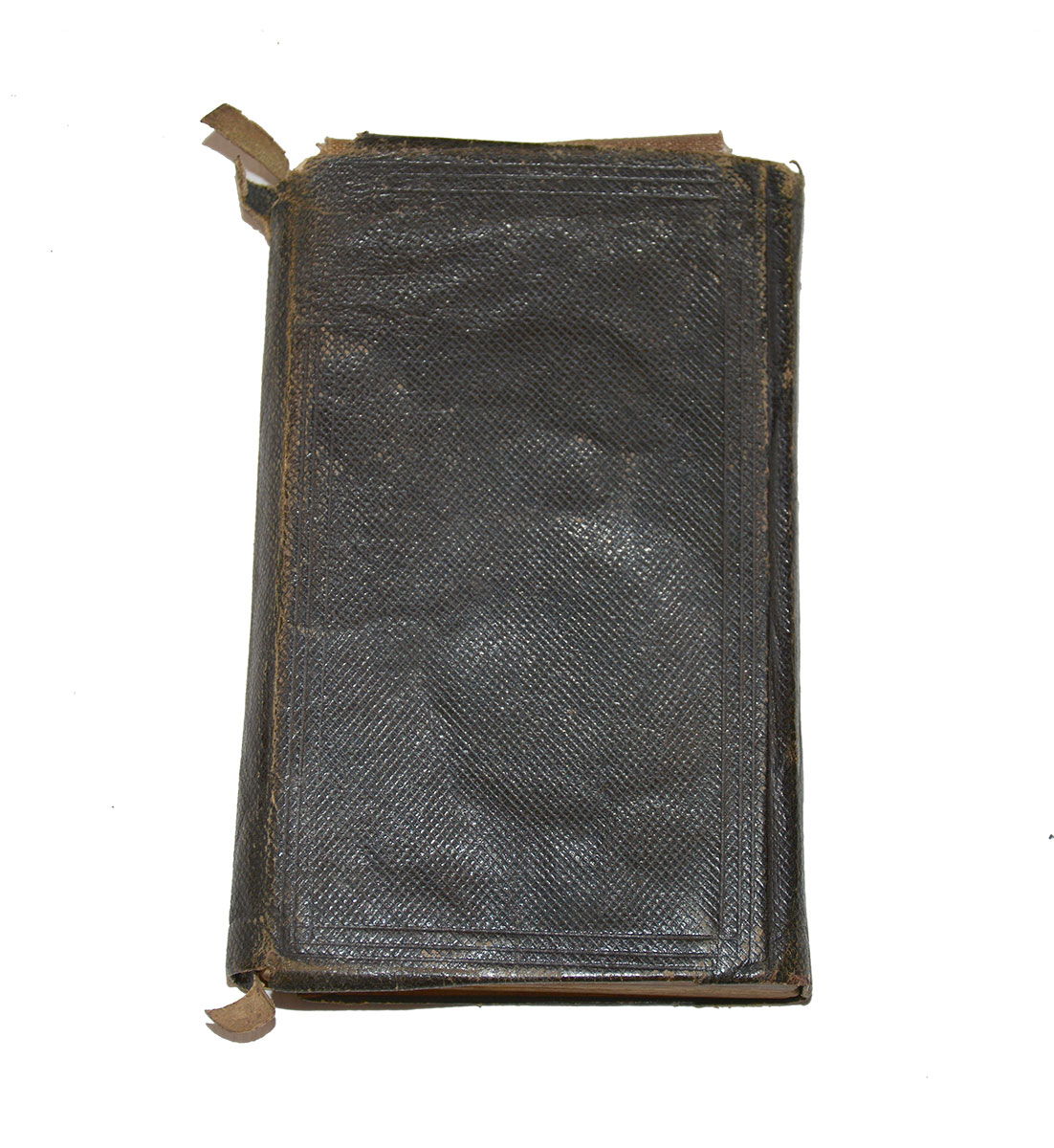
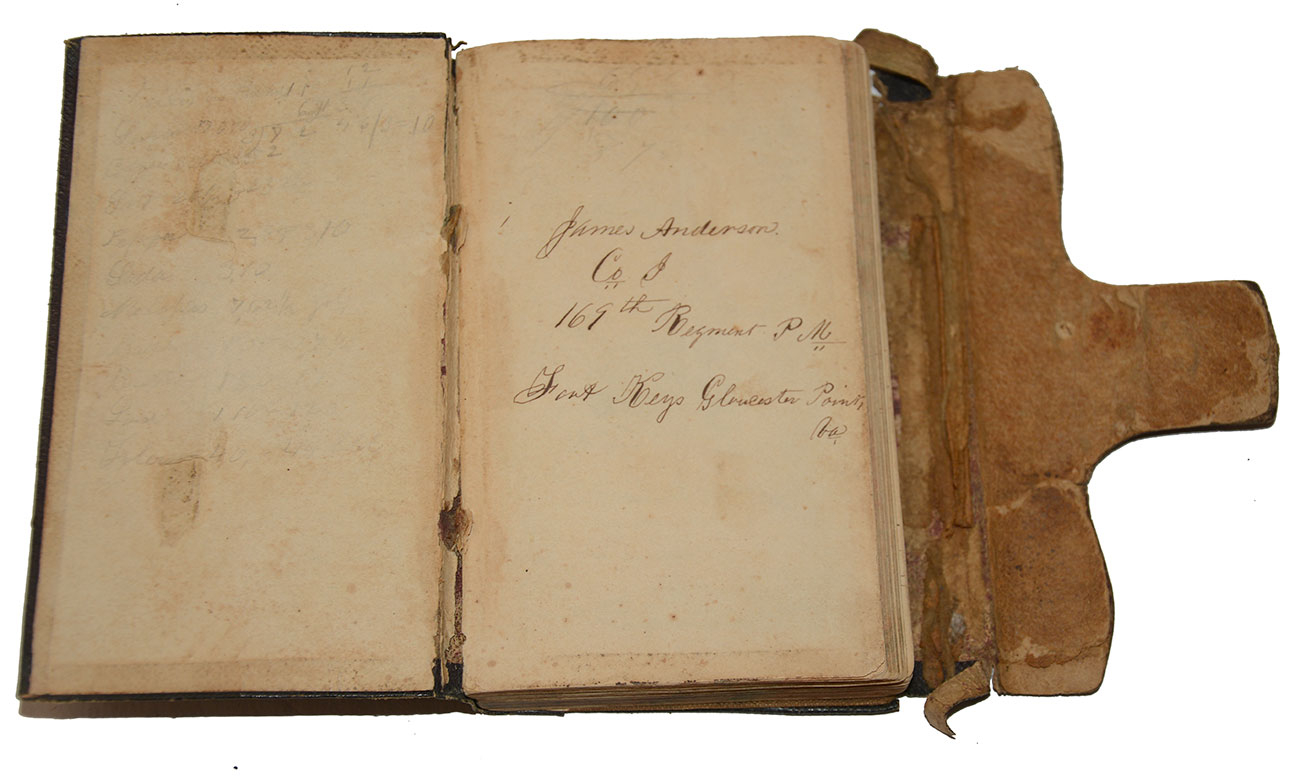
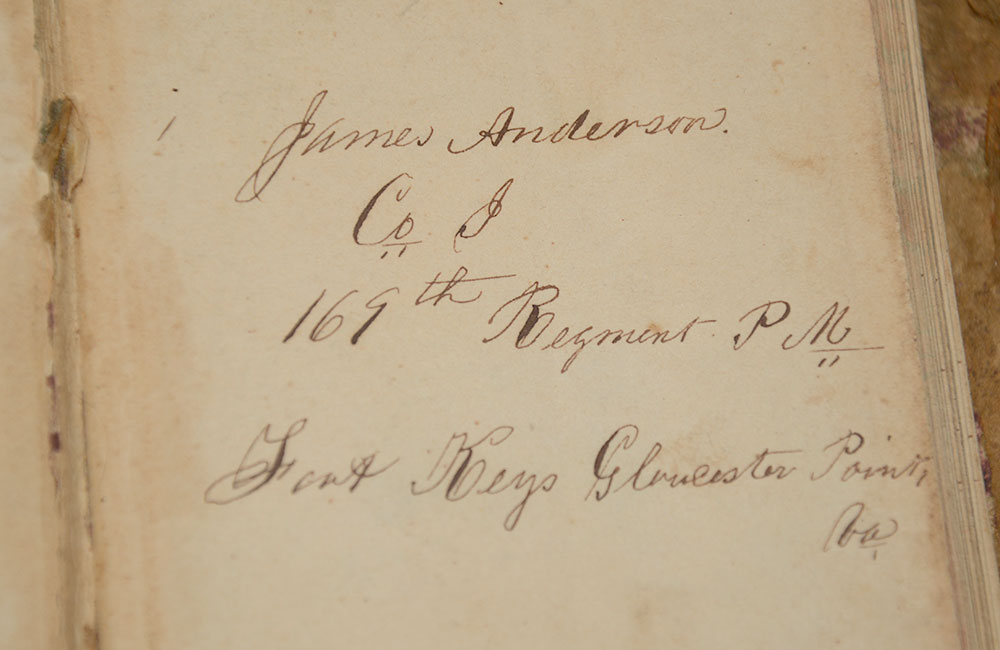
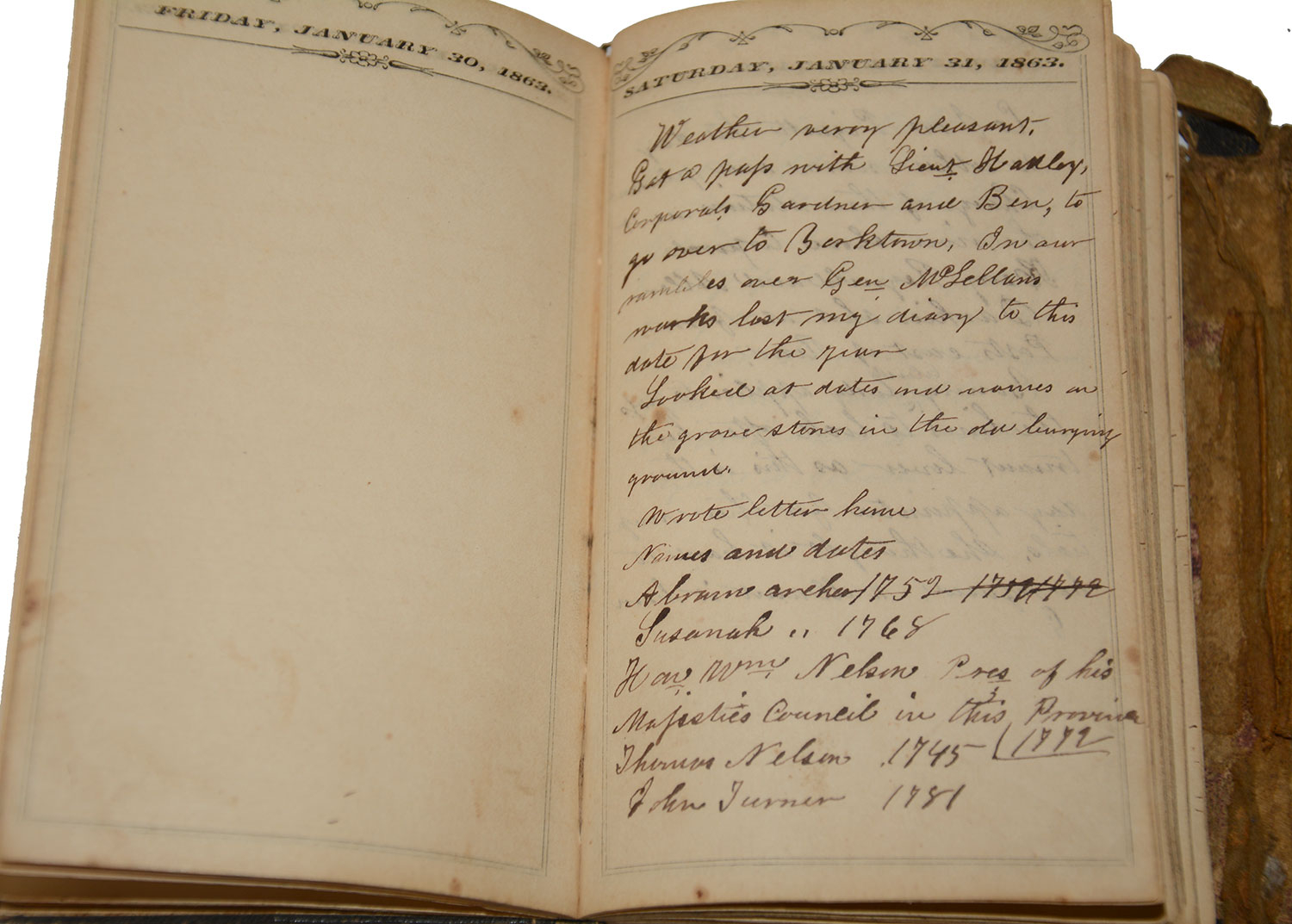
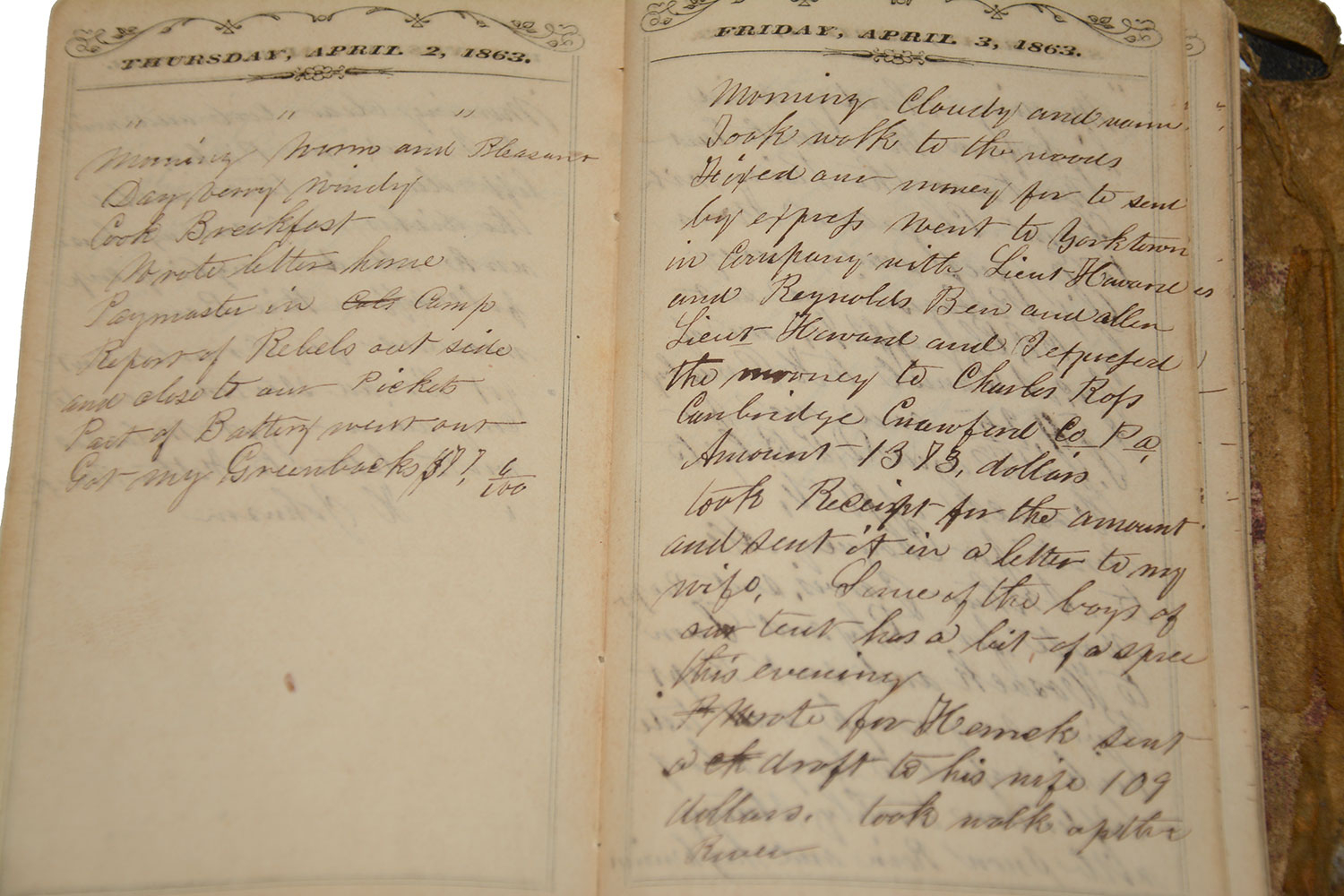
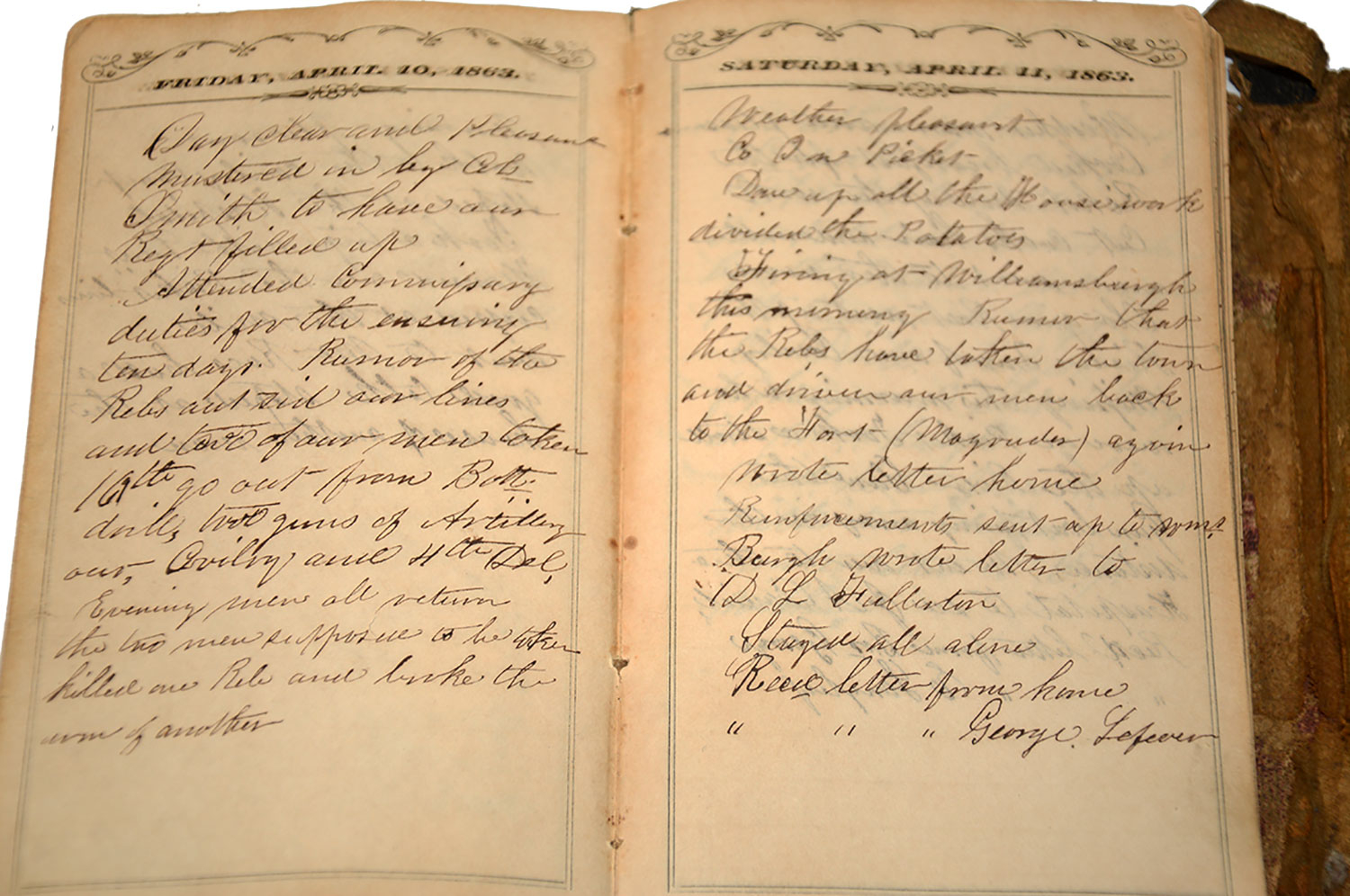
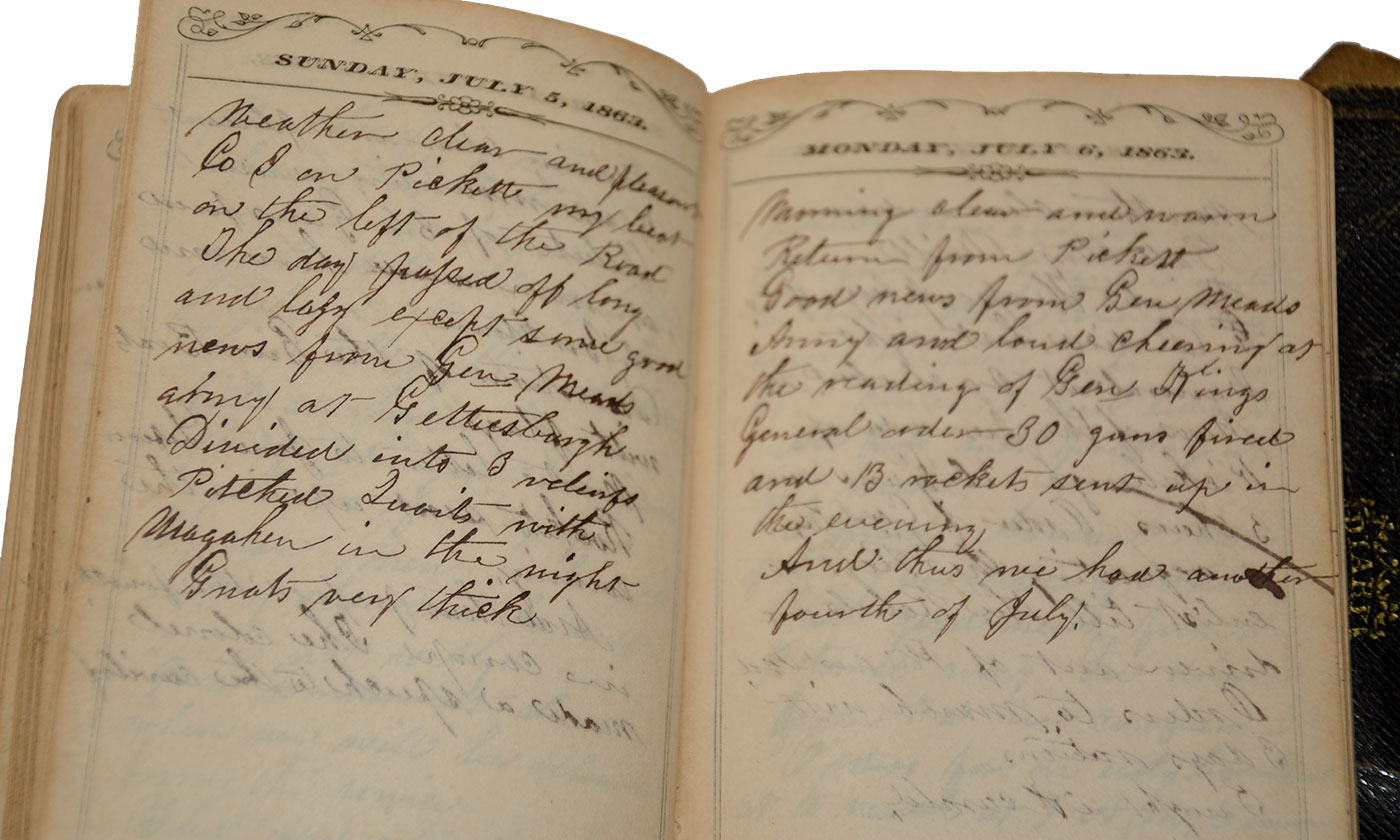
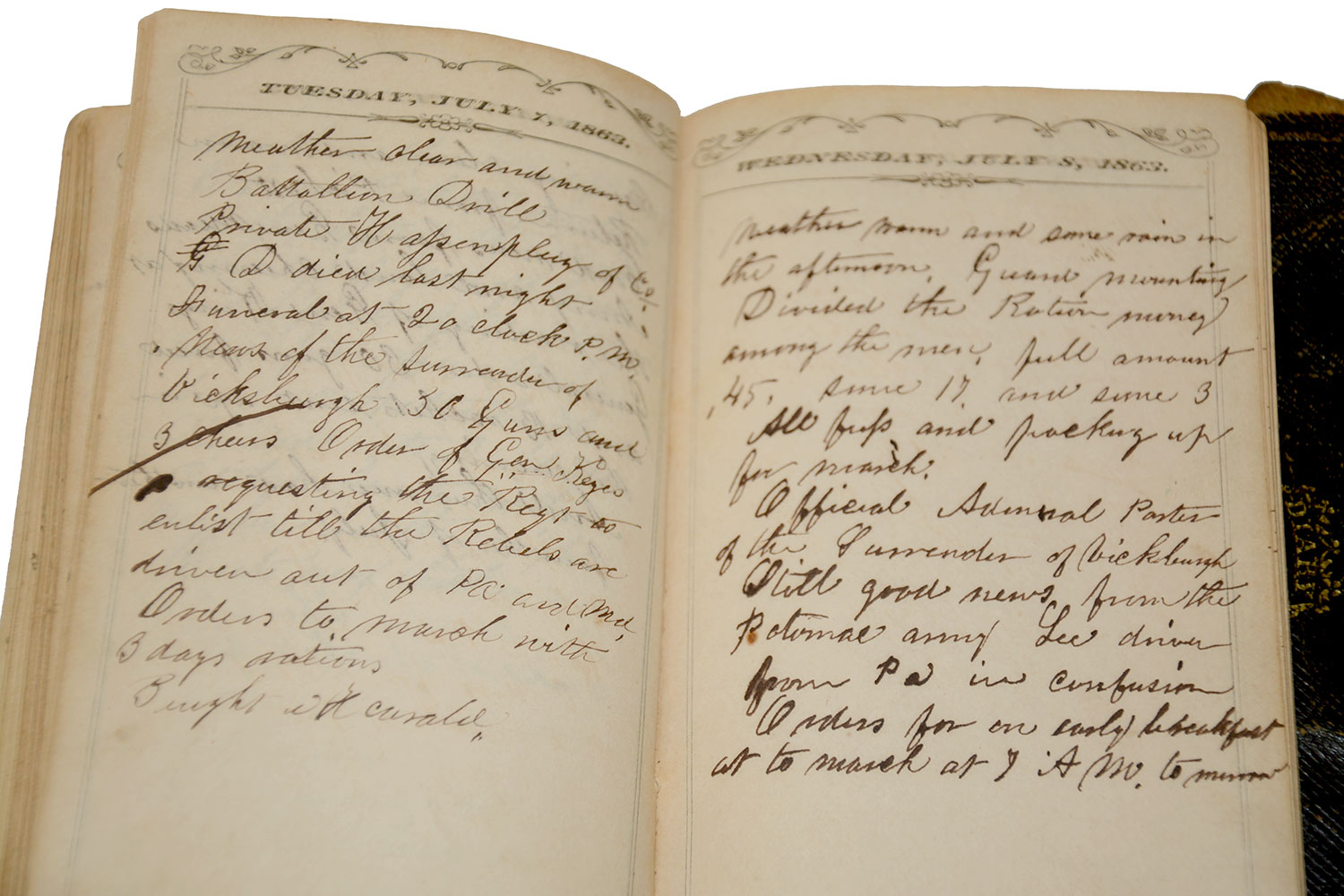
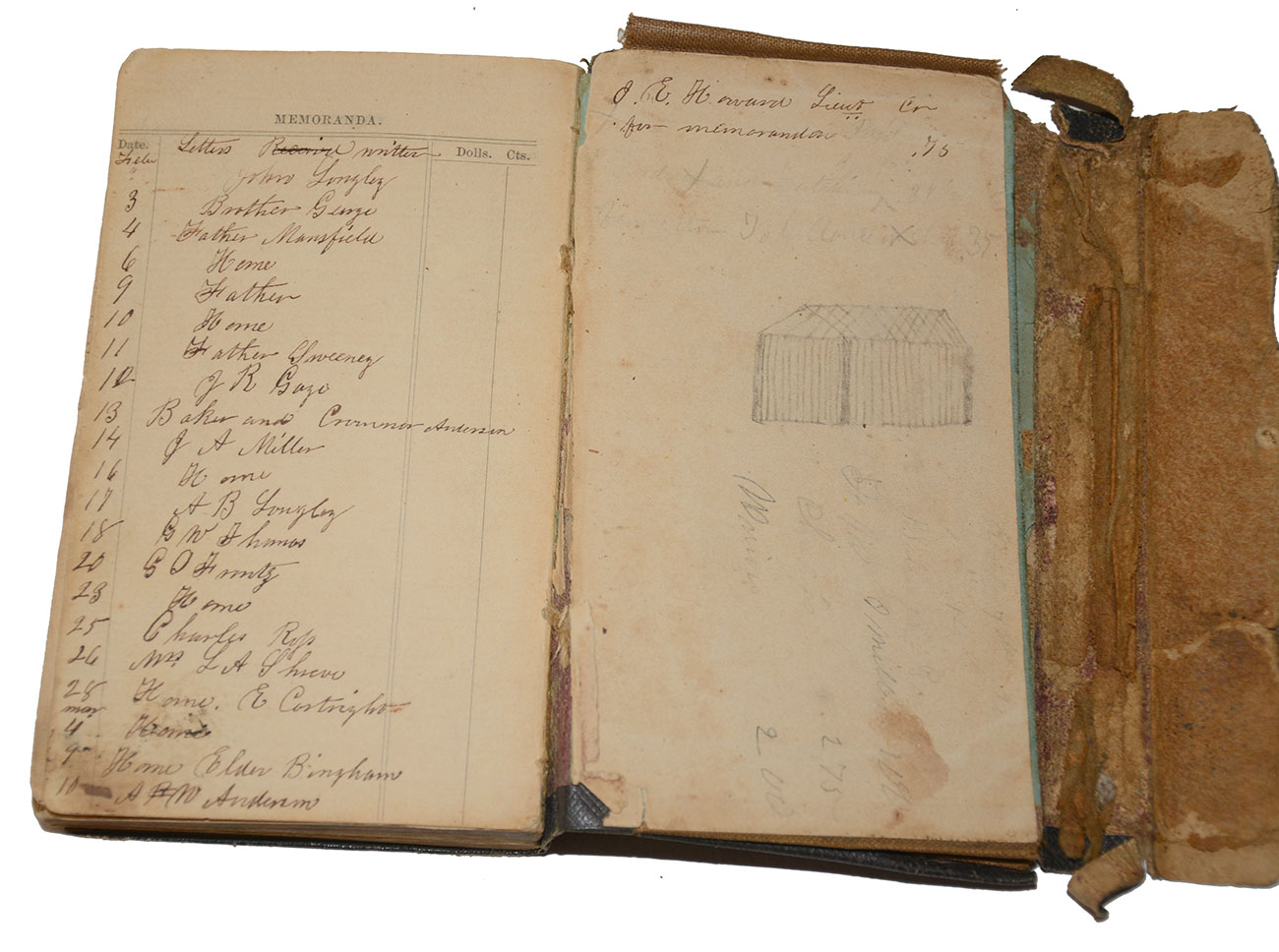
$1,250.00
Quantity Available: 1
Item Code: 1268-1032
Shipping: Determined by Method & Location of buyer
To Order:
Call 717-334-0347,
Fax 717-334-5016, or E-mail
This pocket-sized diary was carried by Sergeant James Anderson, of the 169th Pennsylvania Infantry. He resided in Crawford County, PA. when he enlisted and mustered into Company I of the 169th Pennsylvania on October 16th, 1862. He served with the regiment through all campaigns and expeditions, and was promoted to Sergeant in short order. He was mustered out at Harrisburg, PA on July 26th, 1863. According to available records, his Widow, Polly Anderson, applied for a pension on December 1st, 1886 from the State of Pennsylvania.
James signed his name and other details on the first flyleaf, which reads “James Anderson Co. I 169th Regiment P.M.(Activated Militia) Fort Keys Gloucester Point, Virginia”. The first entry is recorded on the page headed “January 31, 1863”. In it, he establishes his writing style (short and succinct) and notes the weather as being “very pleasant”. He mentions visiting the graves and headstones in the “old burying ground” and then a list of completed tasks and chores.
He writes an entry each day through July 8th, always making note of the weather, tasks on the agenda, important happenings, and notable war events. A full catalogue accounting of the letters he wrote during his term of service is written in a section at the back, with both the number of letters and the recipients. He mentions directly the news of Union victories, consumption of beer, going for oysters with officers, a catalogue of letters written, and the daily businesses of soldiering. The sum of the entries provides an interesting perspective from a soldier who was actively serving but had the opportunities to fully observe and document his surroundings and experiences.
The pocket-sized diary is covered in a black cloth and is marked “DIARY 1863” in a stylized gold design near the base of the closing tab. Some very light cracking is noted along the closing flap but the complete tab tucks securely under the keeper to close the book. The inner flap shows some cracking and loss to the sections of pliable paper backing, with minor tearing along either edge. Two creased sections of fabric are glued to the rear board to form a pocket – one remains fully attached and the other, partially. All pages are securely bound, save for a portion of the letter catalogue section – which is complete and included (they may have been carefully cut or torn from the binding at some point and returned in order). The publisher is listed as Denton and Wood, 1863, and features sections for writing, planning, a short calendar, and accounting. The interior of the rear cover is marked “J. E. Howard Lieut. ? for memoranda .75” in the hand of James. A penciled drawing of a house frame with writing that appears to pertain to pay related matters. Overall measurements are 4.9” x 3.1”.
A excerpt of the summary of the service of the 169th Pennsylvania:
“On the 1st of December, 1862, the regiment started for Washington, and upon its arrival, was ordered to Fortress Monroe, reporting to General Dix, in command of the Department, on the evening of the 5th. On the morning of the 7th, it was sent to Yorktown, and on the day following, to Gloucester Point, where it went into camp, and drill and the routine of guard and picket duty were commenced. Near the close of the month, it was transferred to Fort Keyes, which it garrisoned, and in addition performed picket duty on its front.
Detachments from the regiment were repeatedly sent out into the enemy's country, and were, in a marked degree successful in accomplishing the purpose for which they were sent. While out upon one of these, Corporal Lewis Eaton-who was afterwards fearfully wounded in the battle of Laurel Hill, on the 8th of May, 1864, while serving in the Eighty-third Regiment, receiving no less than five severe wounds through his body,-shot and wounded a rebel Colonel, and brought in his sword and trappings. Considerable sickness prevailed in the command during the winter and spring, and several died.
On the 9th of July, 1863, the regiment moved by transport to Washington, and thence marched through Frederick City and Boonsboro, to Funkstown, where it arrived on the 14th, reported to headquarters of the army of the Potomac, and was assigned to duty with the Eleventh Corps. It was at once moved to the front, and came up just in time to see the enemy's pickets retire, the main body of the rebel army having escaped across the river. It joined in the pursuit, making a rapid march to Williamsport, and arrived in time to receive a few parting shots, and to see the rear of the rebel train disappear on the Virginia shore.
On the following day it was detached from the Corps, and moving back through Hagerstown to Monocacy, returned by rail via Baltimore and Philadelphia, to Harrisburg, where, on the 27th, it was mustered out of service."
A neat, personal, and absolutely unique artifact from the Civil War – a stellar piece for the ephemera collector.
Ex – Texas Civil War Museum collection. [cm][ph:L]
~~~~~~~~~~~~~~~~~~~~~~~~~~~~~~~~~~~
THIS ITEM, AS WITH ALL OTHER ITEMS AVAILABLE ON OUR WEB SITE,
MAY BE PURCHASED THROUGH OUR LAYAWAY PROGRAM.
CLICK HERE FOR OUR POLICIES AND TERMS.
THANK YOU!
Inquire About 1863 CIVIL WAR DIARY OF JAMES ANDERSON – 169th PENNSYLVANIA
Most Popular
Historical Firearms Stolen From The National Civil War Museum In Harrisburg, Pa »
Theft From Gravesite Of Gen. John Reynolds »
Selection Of Unframed Prints By Don Troiani »
Fine Condition Brass Infantry Bugle Insignia »
featured item
CIVIL WAR INFANTRY SERGEANT’S FOUR-BUTTON FATIGUE BLOUSE
This is a very good example of a very rare Civil War uniform: the 4-button blouse originally designated for “fatigue” wear in the regular army, but which quickly became the standard field uniform in the Union army, worn by enlisted men in all… (1268-268). Learn More »


